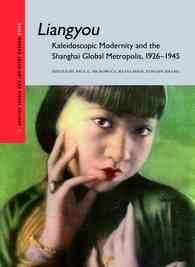Full Description
An innovative edited collection which examines fandom in marginalized communities from an empirically based, media psychology perspective.
This book specifically focuses on fandom communities and cultures as spaces for marginalized individuals - LGBTQ+, BIPOC, and more - to gather, engage with one another, and create their own representation to disrupt dominant, societal discourse as presented in the mainstream media. Edited by Leah Dajches and Jennifer Stevens Aubrey, the collection features the work of well-known scholars currently working within the disciplines of fan studies and media effects, as well as new and emerging voices in these fields. Made up of innovative theoretical and empirical contributions, the book is organized into three key sections: (I) Theoretical Advances in Fandom Media Effects, (II) Individual Fandom Communities and Media Effects, and (III) Innovative Methodological Approaches to Fandom. This collection highlights how fandom communities and cultures can function uniquely for those with identities based within marginalized communities.
A must-read for upper-level students, researchers, and scholars interested in the intersection between fandom and fan studies, media effects, and media psychology.
Contents
Acknowledgments
List of Contributors
Preface
Melissa Click
Introduction
Jennifer Stevens Aubrey and Leah Dajches
Section 1: Theoretical Advances in Fandom Media Effects
Introduction
1. Fan Identity and Narrative Engagement with Fictional Texts
Laramie Taylor
2. A Social Identity Approach to Popular Media Fandom: An Integrative Review
Elizabeth L. Cohen and Timothy Bobbitt
3. Beyond the Fandom: Exploring Identity and Media Effects Among BIPOC Fans
Meghan S. Sanders
4. The Stories We Love and the Stories We Live: A Narrative Identity Approach to studying Marginalized Adolescents in Fandoms
Kausumi Saha and Jennifer Stevens Aubrey
Section 2: Individual Fandom Communities and Media Effects
Introduction
Subsection A: Historically Marginalized Communities and Fandom
5. Unlocking Disney's Vault: Fanship, Nostalgia, and Parental Mediation
Timothy Luisi, Monique Luisi, and Elizabeth Behm-Morawitz
6. Anti-Hero or Pro-Social Inspiration?: Taylor Swift, Fandom, and Pro-Social Behavioral Intentions
Gwendelyn Nisbett
7. The Power of Parasocial Relationships: Navigating the Intersection of Fandoms and Black Men's Mental Health through HBO's Insecure
Tieranni Parquet and Julie Watson
Subsection B: Mainstream Fans and Fandom Effects
8. Beyond Dunder Mifflin: The Relationships between Fandom, Parasocial Relationships, and Depression in The Office Fans
Tracy R. Worrell and Sawyer Tehan
9. "We're Richmond till We Die": Disrupting American Sport Exceptionalism through Fictional Sport Fandom
Jeffrey W. Kassing and Hazel M. Morales-Ramirez
10. Staying Sexy and not Getting Murdered: True Crime's Influence on Perceptions of Crime and Policy Attitudes
Sofia Rhea and Laramie Taylor
Section 3: Innovative Methodological Approaches to Fandom
Introduction
11. Queering Mainstream Superheroes: A Psycholinguistic Analysis of Shipping in Marvel Cinematic Universe Fanfiction
Hayley McCullough
12. Fanvids in Memoriam: A Conditional Process Model of Parasocial Grief, Retrospective Imaginative Involvement and Meaning-Making Coping in Response to a Fictional Character's Death
Hailey Scherer and Elizabeth L. Cohen, and Yixi Zhou
13. Let's Talk About Sex: Erotic Education through Explicit Fanfiction
Emily E. D'Antonio, Hayley McCullough, and Jennifer Pollitt
14. Subverting Mainstream Media Messages through Queer Readings
Leah Dajches
Index




